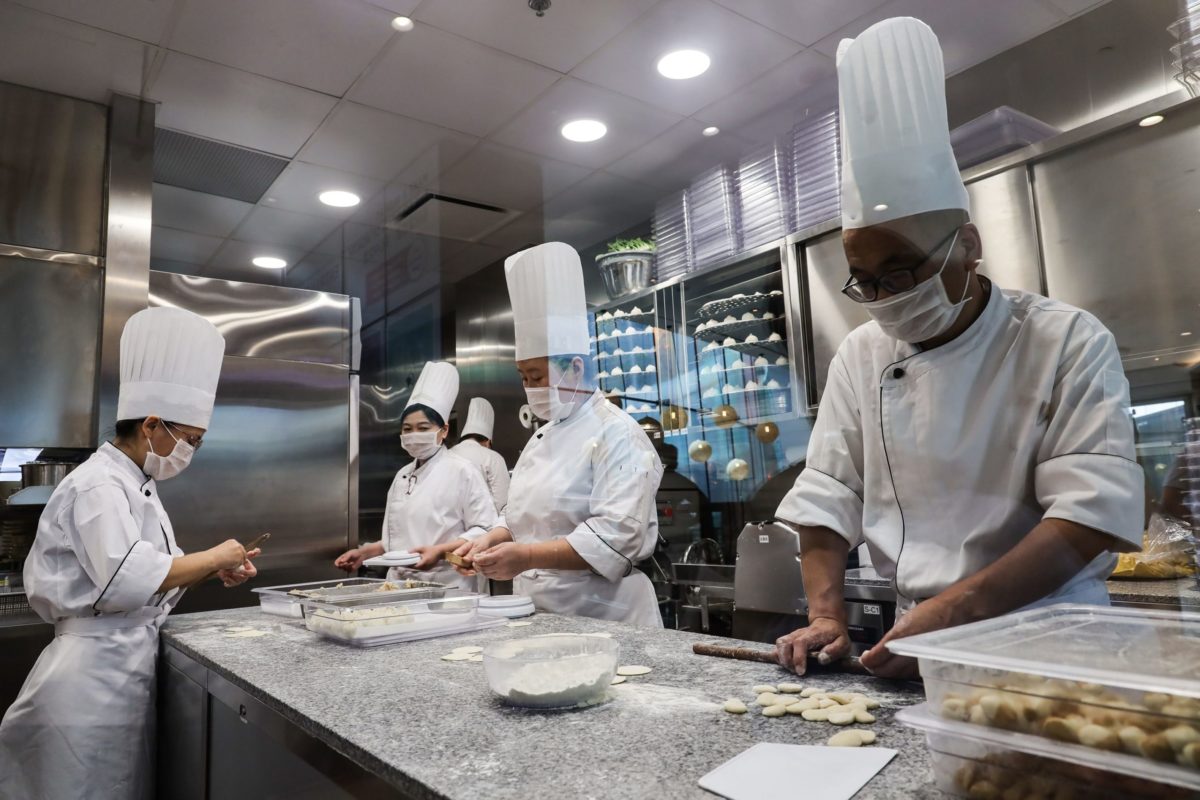There has been a lot of uncertainty across all industries, mainly due to the myriad of changes that have to be applied in a post-COVID-19 world. The hospitality industry, which covers hotels and restaurants, will be among the hardest hit. Nevertheless, there is still a need for these businesses to continue operating, not just in terms of generating revenue, but also providing Filipinos with jobs and income.

Chef Thomas Wenger

Ms. Bel Castro
The question to ask here is, “what changes await hotels and restaurants in this ‘new normal’ and how can the hospitality industry adapt?” We spoke to Ms. Bel Castro, Assistant Dean of the College of International Hospitality Management, and Chef Thomas Wenger, Senior Vice President of Enderun Hotels, to provide you with a few insights to help you anticipate what changes are necessary and how your hotel or restaurant can adapt.
On sanitation and cleanliness
“Once there is a loosening up of restrictions, we have to ask which changes will be for the short-term? The long-term? Which ones will be permanent?” says Bel Castro.
Both experts agree, however, that changes in sanitation and cleanliness will be permanent for both hotels and restaurants.
“More stations, sanitizing stations, will be put in place. There will be masks required in most sections of a hotel.” says Thomas Wenger. “In our rooms, we need to convey to our guests that their telephone, their safe, their mini bar, their toiletries, everything has been sanitized properly before they arrive.”
Bel Castro adds, “[For restaurants] a lot of the things that have to happen are things that aren’t easy to see: maybe HEPA filters, maybe UVC lights. Waiters will need decent locker rooms [to help them better wear their safety gear]. Staff will likely need to become certified in food safety, something like ServSafe classes or FoodSHAP® classes.”
Of course, there’s also a need for more visible features. Masks and the use of PPEs may become something we see in some restaurants and hotels. Buffets, should they be allowed to resume operations, will need to look into limiting the number of people at any given time, as well as set up shields for their spread. It’s all about acknowledging risks and addressing them in order to help customers feel safe.
“For me, an uncovered salad bar at a five-star restaurant presents more of a risk than a stick of isaw fresh off the grill.” Bel Castro muses.
On the use of technology becoming more prominent
Technology has come a long way in making the lives of people easier. Maybe it’s time to start embracing technology a little more in the hospitality sector. Things like digital advertising and tablets for menus and ordering, etc. are some of the solutions that restaurants will need to tap into.
Hotels, on the other hand, will need to change many of the processes that they have become accustomed to on top of adding technological solutions. Mr. Wenger illustrates as much, using hotel check in as an example.
“We need to reinvent the check-in process, where everything may need to be sent ahead of time [to facilitate no-contact or self-check in]. Maybe a scanned copy of the guest’s passport and credit card [has to be sent in advance].”
On building trust and confidence in your customers
Building the trust and confidence in customers is key to building a successful brand. Both Ms. Castro and Mr. Wenger agree that the changes ahead may be met with trepidation, but all of these measures are meant to instill trust and confidence in your brand.
“The future [of restaurants] will be built on trust and transparency… [For some restaurants] there may be a need to be transparent on how we store the food, handle the food, posting videos on Facebook and other social media.” says Ms. Castro.
“We will need to make sure that we build the consumers’ and guests’ confidence. So we need to make sure our staff knows what they’re doing, [invest in training in regard to new protocols.]” chimes in Mr. Wenger
Yet, we must never the true meaning of Filipino hospitality
Despite all these changes to help ease the worries of guests and ensure social distancing guidelines are met, both Mr. Wenger and Ms. Castro hope that people in the industry continue to provide their guests with the trademark warmth of Filipino hospitality.
“We cannot lose that ‘hospitality touch’.” says Mr. Wenger. “We are people who deal with people on a daily basis. We need to welcome guests as the same, but in these times, we just need to do it with some restrictions in terms of spacing. But this should not mean that we show less heart, do less service. It should mean that we do more. That will be the challenge: conveying sincerity to our guests.”
COVID-19 will bring about many changes in our everyday lives. While things may never truly be the same as they were pre-pandemic, maybe these changes can help usher in new opportunities, new innovations. And that is a future that is worth striving for.

 menu
menu